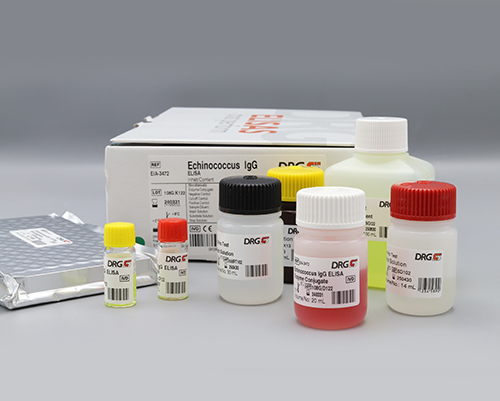
Echinococcus IgG
An enzyme immunoassay for the qualitative and semiquantitative determination of IgG-class antibodies to Echinococcus in serum and plasma. Echinococci are microscopic cestodes (tapeworms) with a length of 1.4 to 6 mm which are dependent on their genus found. o either in dogs or other canids (E. granulosus) o or in foxes, coyotes and wolves (E. multilocularis) Sources of infection are final hosts (i.e. dogs for E. granulosus and mainly foxes for E. multilocularis) and food contaminated with parasite eggs. After ingestion of a suitable intermediate host, the egg hatches in the small bowel and releases an oncosphere that penetrates the intestinal wall and through the circulatory system into various organs where it develops into a cyst. Echinococcus infections remain silent for years before the enlarging cysts cause symptoms in the affected organs E. granulosus larvae (oncospheres) begin to vesiculate mainly in the liver but also in the lungs and in other organs (20%). The parasites form spherical, unilocular, fluid-filled cysts and can achieve diameters between 1-15 cm. In contrast to cystic echinococcosis, E. multilocularis larvae are found almost exclusively (98%) in the liver, but secondary lesions can spread metastatically to other organs (lungs, kidneys, CNS and others).
